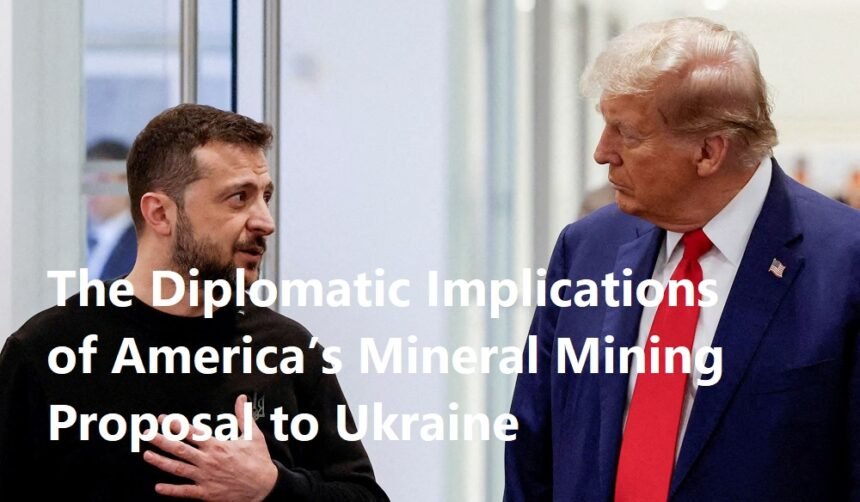In recent developments, the United States has asserted a significant condition for its continued support of Ukraine amid ongoing geopolitical tensions. The proposal, which suggests that Ukraine must allocate 50% of its mineral resource mining profits to the United States, raises critical questions about international alliances, economic dependencies, and the nature of foreign aid in times of conflict.
Historically, the U.S. has offered extensive support to Ukraine, particularly following Russia’s annexation of Crimea in 2014 and the subsequent conflict in Eastern Ukraine. This support has included military assistance, financial aid, and diplomatic backing in international forums. However, the evolving nature of geopolitical dynamics has compelled the U.S. to reassess the terms of its support. By tying military and economic assistance to Ukraine’s mineral wealth, the U.S. is indicating a shift towards a more transactional relationship, reflecting an urgent need to safeguard its own national interests while promoting economic prosperity for Ukraine.
The proposal centers on Ukraine’s rich deposits of critical minerals, which are indispensable not only for domestic industries but also for global supply chains, particularly in the technology and defense sectors. As the world increasingly confronts the challenges of resource scarcity and the impacts of climate change, minerals such as lithium, cobalt, and rare earth elements have emerged as strategic assets. The U.S.’s interest in these resources aligns with its broader economic and security objectives, particularly the desire to reduce dependency on foreign mineral supplies, notably from countries considered adversarial.
Ukraine’s compliance with this proposal could carry significant implications. On one hand, this arrangement could bolster Ukraine’s economy, providing necessary infrastructure and investment to develop its mineral sector. This influx of resources could enhance local employment, stimulate growth, and potentially transform Ukraine into a central player in global mineral markets. On the other hand, the arrangement may further entrench the notion that Ukraine’s sovereignty is conditional upon its economic concessions, risking national autonomy and fueling domestic dissent.
Moreover, the diplomatic ramifications of such a proposal cannot be overstated. Ukraine may find itself in a precarious position, caught between a desire for Western support and the need to maintain a sense of sovereignty. This situation is compounded by the perspective of other international actors, particularly Russia, which may interpret such actions as indicative of Western imperialism or neo-colonialism. Consequently, Ukraine’s geopolitical standing could be precariously affected, forging a complex web of alliances and enmities.
The prospect of a 50% profit allocation raises ethical questions as well. It prompts a critical examination of the United States’ role as a global leader and ally. Should foreign assistance be predicated on extracting economic benefits from partner nations? This proposal could foster perceptions of exploitation rather than genuine partnership, potentially undermining the trust that is critical for successful international relations. Allies may question whether their own sovereignty is at risk if they perceive U.S. support as transactional rather than altruistic.
In conclusion, while the United States’ proposal for a 50% share of Ukraine’s mineral mining profits represents a pragmatic approach to securing its own interests, it is fraught with complexities that transcend mere economics. The implications of such a requirement could significantly impact Ukraine’s economic trajectory, sovereignty, and international relations. It is imperative for all stakeholders to engage in thoughtful discourse surrounding this proposal, considering both the potential benefits and the ethical ramifications inherent in such a transactional approach to international support. The path forward must strive to balance national interests with principles of equity and respect for sovereignty, ensuring that alliances are built on mutual cooperation rather than constraining conditions.













